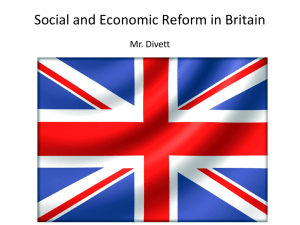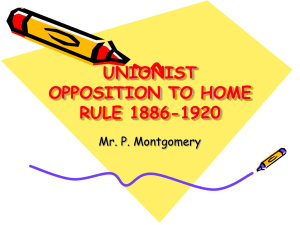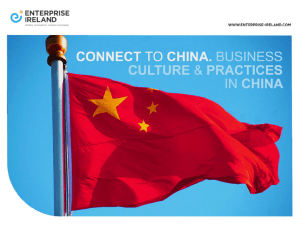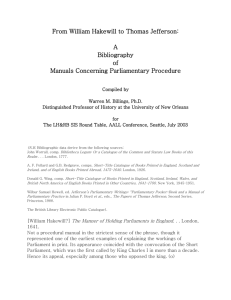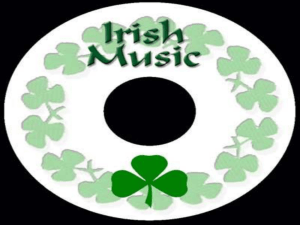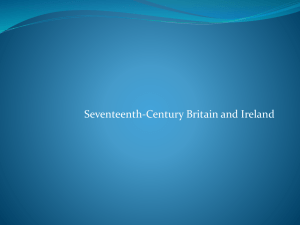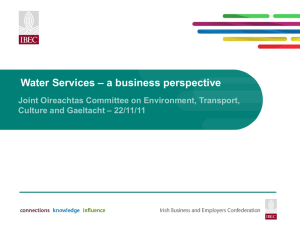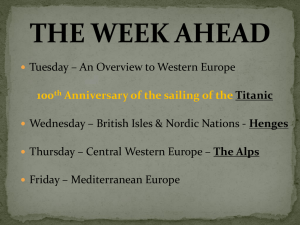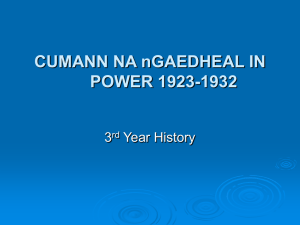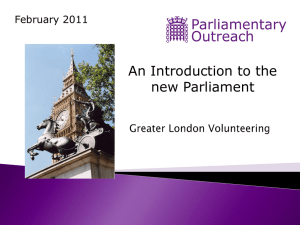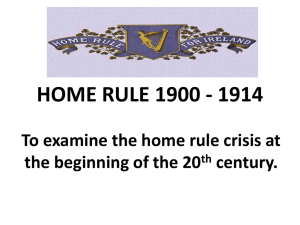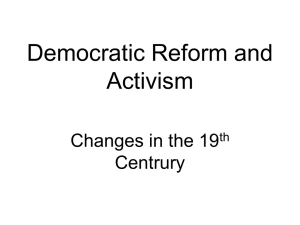Ireland in the early 20th century.
advertisement
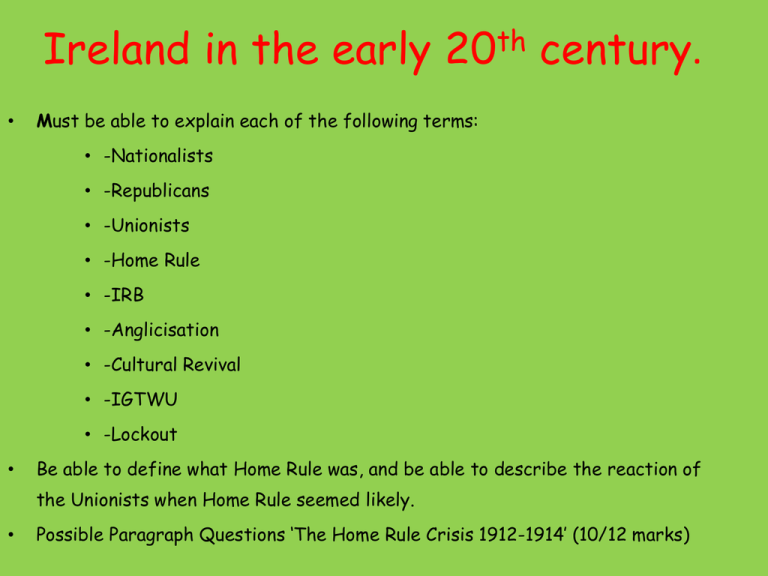
Ireland in the early 20th century. • Must be able to explain each of the following terms: • -Nationalists • -Republicans • -Unionists • -Home Rule • -IRB • -Anglicisation • -Cultural Revival • -IGTWU • -Lockout • Be able to define what Home Rule was, and be able to describe the reaction of the Unionists when Home Rule seemed likely. • Possible Paragraph Questions ‘The Home Rule Crisis 1912-1914’ (10/12 marks) Nationalists: -Wanted freedom from British Parliament. -Wanted Home rule with own parliament in Dublin for local affairs health, education) -Allow Westminster to govern foreign affairs. -Home Rule party represented these people, led by John Redmond. -Majority were Catholics. (e.g. Republicans: -People who wanted an Irish republic independent from British rule. -Some republicans pledged to use violence to achieve the republic. Were part of a secret organisation called the IRB -Leaders: Thomas Clarke and Sean Mac Dermot. Unionists: -Wanted Ireland to be a part of the United Kingdom. -Majority were Protestants. -‘Home Rule is Rome Rule’. -Represented by Unionist Party. Leaders James Craig and Edward Carson. Edward Carson James Craig •Liberal Party in Britain had tried to introduce Home Rule in Ireland but had failed. •When they were in power again in 1906 they were slow to try again. •In the 1910 election Herbert Asquith needed the support of the Home Rule party to stay in power. You give us Home Rule and we will support you! Parliament Act 1911: House of Lords House of Commons People Parliament Act 1911 • Before Home Rule could become law, the House of Lords could stop it (veto). • King George felt it was unfair that the House of Lords could stop a law that had been passed in the House of Commons. • Parliament Act 1911: Allowed the House of Laws to veto a law for two years but if it came before them the third year, they had to pass it. • Q: What did this mean for Home Rule? Unionists were appalled! • Led demonstrations • Signed the ‘Solemn League and Covenant’’ promising that they would use any means possible to prevent Home Rule. • UVF (Ulster Volunteer Force) set up to oppose Home Rule. • Larne Gun Running: In Larne, Co. Antrim, guns and ammunition were imported by the UVF. Nationalist Reaction • Eoin Mac Neill formed the Irish Volunteers to make sure Home Rule was granted. • Some of the Volunteers were also in the IRB (=violent!). • Imported guns through Howth in 1914. Intention to use guns and Volunteers to fight for Independence. Anglicisation: Term refers to the spread of English Culture • Cultural Nationalists: Wanted to encourage the Irish Culture in order to show separation from Britain. Cultural Revival GAA Gaelic League Anglo Irish literary Revival IGTWU and Dublin Lockout • • • • • • IGTWU: Set up by James Larkin in 1913 to fight for better rights for workers. Employers such as William Martin Murphy were worried by this and tried to destroy the IGTWU by telling members that they would loose their jobs in they did not leave the organisation. Larkin told the workers to go on strike. Employers locked out the workers. Lasted five months. Eventually workers left the union and returned to work. Irish Citizen Army set up in 1913 by James Connolly to defend workers.
